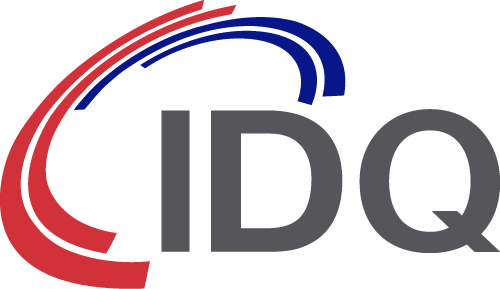Quantum Computing Review Q4 2023
Welcome to the latest edition of our quarterly quantum computing review.
In this edition, we highlight some of the quantum computing stories that hit the headlines between October and December 2023, including advances from Quantinuum, IBM, Atom Computing and more, plus new initiatives from Switzerland and the UK.
2023 heralded the arrival of the 1000 qubit computer
In October 2023, Californian quantum start-up Atom Computing announced it had created the world’s first quantum computer with over 1,000 qubits (1,180 to be precise). This represented a significant advancement on the previous record holder (IBM’s Osprey had 433 qubits), before IBM announced the arrival of its own 1,121 qubit computer in December. Condor is the latest in what is arguably the most mature quantum roadmap from tech giants IBM and features, among other advancements, a 50% increase in qubit density.

(Image: A photograph of the IBM Condor, quantum computer. Image copyrighted by IBM.)
However, more qubits don’t necessarily mean better performance as, when it comes to quantum computers, we aren’t comparing apples with apples. The race to deliver a stable, error-corrected quantum computer continues to spawn multiple ways to address the same challenge, with a universal standard for quantum computing performance yet to emerge.
Scientists demonstrate improved error-correction
As reported in the Harvard Gazette, a new paper: “High fidelity parallel entangling gates on a neutral-atom quantum computer” published in Nature, highlights the Harvard University team’s collaboration with MIT and Boston-based QuEra Computing as they attempt to tackle the thorny subject of error-correction. For the first time, the team demonstrated successful entanglement of atoms, (two qubit logic gates) with ultra-low error rates (less than 0.5%). Effective error correction is a significant move towards practical quantum computing and is the focus of much research and development.
In related news, scientists from Quantinuum successfully demonstrated advancements in fault-tolerant operations using three logically encoded qubits on the H1 quantum computer. Commenting on the achievement, Ilyas Khan, Chief Product Officer and Founder of Continuum said: “The ion trap architecture of our H-Series offers the lowest physical error rates and the flexibility derived from qubit transport… allows users of our hardware to implement a much wider choice of error-correcting codes”.
The Open Quantum Institute (OQI)

In October, the OQI opened its doors at CERN for the first time. Established by the Geneva Science and Diplomacy Anticipator (GESDA) the Open Quantum Institute is positioned to provide inclusive access to quantum computing resources and support the development of quantum technologies. The OQI has four key objectives – what it calls the 4 A’s:
- Accelerating applications for humanity
- Access for all
- Advancing capacity building
- Activating multilateral governance for sustainable development goals
Although it is still early in its development, CERN will host the OQI during its 3-year pilot phase from 2024-2026, GESDA believes its mission to “unite the future of science with the powers of diplomacy to solve the biggest challenges facing the world and humanity”.
Britain invests £2.5billion in quantum future

In an article published in November, The Telegraph’s science correspondent explores Britain’s proposed £2.5billion investment in quantum technologies over the next ten years.
Following the quantum investment strategy revealed in the autumn statement, newly appointed Science Minister Andrew Griffith announced plans to “put quantum technology at the forefront of a plan to commercialize science.” For more information, you can view the National Quantum Strategy Missions on the UK government website.
Quantum collaborations
As the quantum marketplace expands, academia and commerce continue to collaborate on a wide range of quantum initiatives. In November, Microsoft announced it was collaborating with Photonic, a Canadian headquartered operation, to “unlock the next stages in quantum networking and empower the quantum computing ecosystem”. Photonic is developing a unique, fault-tolerant quantum communications architecture, based on spin qubits in silicon.
In December, Oxford Quantum Circuits announced a partnership with software company Classiq, aimed at making quantum computing more accessible to users in both industry and academia. The partnership will see both entities integrating their respective technologies within data centers, with an emphasis on high-performance computing infrastructure.
Also in December, IBM announced it would be teaming up with universities in the US, Japan, and South Korea to enhance the delivery of quantum education for more than 40,000 students. The ambitious 10-year plan is designed to address the perceived skills deficit in the quantum technology marketplace and enhance the prospects of the quantum workforce of tomorrow.
PASQAL along with its partners at Sorbonne Université, Pixel Photonics GmbH (PIX), The Institute of Photonic Sciences (ICFO), and Institut d’Optique Théorique et Appliquée (IOTA) have received a four year grant to research a new type of photonic quantum computer funded by the Pathfinder-2023 challenge grant of the European Innovation. Council.
Reuters Special Report: US and China race to shield secrets from quantum computers.

A whistle-stop tour of the quantum world
Quantum is big business. Whilst the likes of the US and China are dominating the headlines, there are a lot of other countries working to establish their own quantum credentials.
In Taiwan, Hon Hai Precision Industry Co has opened a new quantum computing laboratory at its research institute in Taipei. The first of its kind in Taiwan, the laboratory has been built to focus on quantum computers based on trapped ions.
Denmark, home of quantum physicist Niels Bohr, recently announced phase two of its National Quantum Strategy. Over the next three years, the Danish government will invest €161million to bolster the country’s quantum ecosystem. The investment comes after the country was chosen as the home for the new NATO Center for Quantum technologies last year.
Still in Scandinavia, and VTT technical Research Centre of Finland opened its 5-qubit quantum computer to European firms looking for a testbed to develop quantum solutions. The resource, available via the LUMI supercomputer at the CSC data center in Kajaani is available on subscription.
Australia and the UK signed a joint statement in November. The memorandum of understanding is designed to open channels for greater investment in quantum technologies between the UK and Australian companies and supports joint activities under the Australia-UK Cyber and Critical Technology Partnership and the Australia-UK Free Trade Agreement.
In December, the EU made a joint statement on quantum technology. The European Declaration on Quantum Technologies has already been signed by 8 member states and is in recognition of “the strategic importance of quantum technologies for the scientific and industrial competitiveness of the EU”.
EUROPOL Report: The Second Quantum Revolution – the impact of quantum computing and quantum technologies on law enforcement.

IDQ in the news
- Researchers leverage IDQ SNSPDs to demonstrate underwater quantum communications feasibility
- Government invests $10million in Canada’s first quantum communication test bed
- SK Telecom launches new subscription-based quantum-safe-as-a-service offering
- Ariane 6 launcher project team completes long-duration hot-fire test on launch pad
- Singtel to develop Singapore’s first nationwide quantum-safe network for enterprises
- Telstra takes a step closer to quantum secure networking


